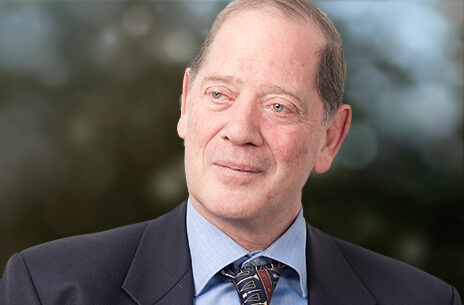 ANTHONY Edwards’ passion for criminal law is evident from the moment one meets him. “I started coming to the office when I was five and never wanted to do anything else. I never have! I can make people agree that it is the best job in the world – because it is.”
ANTHONY Edwards’ passion for criminal law is evident from the moment one meets him. “I started coming to the office when I was five and never wanted to do anything else. I never have! I can make people agree that it is the best job in the world – because it is.”
Anthony’s uncle founded the firm TV Edwards in 1929, and Anthony is an experienced criminal defence solicitor whose reputation earns personal rankings in the well-known legal directories.
The joy is in the variety
Criminal law cases are shaped, each uniquely, by the nature of the offence charged and the client being represented. “The fun,” Anthony says, “is in the variety”. On any given day, he may start a food safety or a licensing case, up to murder, serious assault and major frauds – occasionally involving well known individuals.
“Often, more satisfying small cases come and go at some speed. Bigger cases can take over because of the sheer volumes involved and one has to give up the normal day job to handle them at particular times. The best cases are those you start in the police station, on which you advise in the Magistrates Court and Crown Court, and then represent the client in the Crown Court to see your advice bear fruit.”
This is a demanding area of law. Criminal defence solicitors must be ready to serve clients as they are called upon. Each day has the potential to throw up a surprise and criminal defence solicitors prepare for, and appear, in a variety of forums.
Anthony added, “The joy is that there is no typical day. In younger years it would be court every day, doing the remand list or trials in the Magistrates Court, and preparing overnight for the next day’s work.
“We also have to prepare for the Crown Court on cases allocated to us, and for established clients, in the right case, we will do the Crown Court advocacy.
“We then have to fit in the police station visits. We all do shifts. The more established lawyers have to do these at night and weekends as they are in court during the week. We have to interview clients and potential clients, both at liberty and in prison.”
Providing access to justice
This mention of liberty focuses the mind on the high-stakes involved. Individuals accused of criminal behaviour face losing their liberty, property and public standing. Access to justice is crucially important, and Anthony – who is a member of JUSTICE – views his role as being one of ensuring that justice is done.
“I helped to set up both the court and police station duty solicitor schemes.” These schemes provide legal representation to people accused of committing a crime. “They have been of huge value to clients if only clients would ask for them – take up is still too low.
“Police station duty work can be incredibly rewarding when you pull off results. These make an immediate difference to people’s lives and in the bigger, more serious cases the advice given often determines the outcome.
“Court duty work is much less satisfying than it used to be. The courts treat the lawyers with little respect and see them as there to help the court rather than the client. It is a daily battle not to become part of a machine processing people for the benefit of the system. That is not what we are about. Yet on a day I clear the cells, there is a real satisfaction to the job.
“We have access to justice in criminal cases but its quality is variable. The government does not care about quality, and many of the best younger lawyers have left the area”.
Following Anthony’s footsteps
While that may be so, the ever-growing ranks of the JUSTICE Student Network evidence a cohort of young lawyers committed to access to justice and to protecting individuals’ rights. So what should our subscribers do to build a career in this area? Having spent more than forty years in the field, Anthony has some solid advice.
“For recruitment, we look for a good degree, because even in legal aid they must be good lawyers. We also look for commitment. That can be shown in many ways but working in the local community is a good starter.
“The key skills are negotiation and communication, not necessarily in the court room atmosphere. We want to employ people whom clients will like and respect and yet accept difficult advice from. We need an absolute commitment to making the Crown prove its case.
“Once someone is thinking of doing criminal law they should as soon as possible gain police station accreditation. Even if they end up at the Bar, the ability in the early hours to deal with difficult police officers and even more difficult clients will make them better at their eventual job.”
If you’re convinced that this sounds like the best job in the world, Anthony’s message is to go for it. He concluded, “The most rewarding part of my job is training the young people who do want to do criminal law cases really well”.
